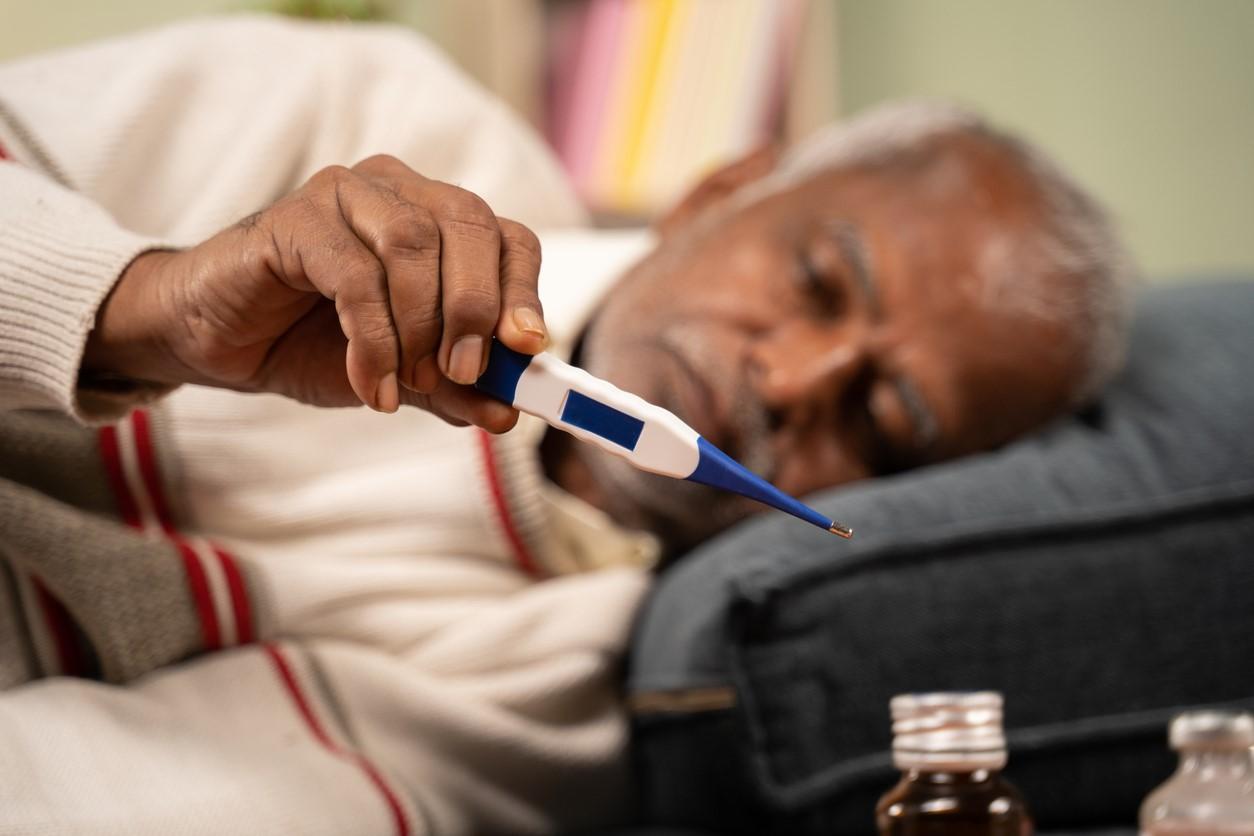A study involving more than 3,400 adults in Hong Kong diagnosed as having type 2 diabetes and COVID-19 finds that treatment with molnupiravir or nirmatrelvir-ritonavir (Paxlovid) was linked to a 29% lower risk of all-cause death and/or hospitalization relative to no treatment.
For the study, published today in JAMA Network Open, University of Hong Kong researchers analyzed the electronic medical records of 3,428 nonhospitalized patients with both type 2 diabetes and COVID-19 who received one of the two oral antiviral drugs or no treatment (controls). The study was conducted from February 26 to October 23, 2022, a period dominated by the SARS-CoV-2 Omicron variant.
The antivirals are indicated for patients with mild to moderate COVID-19 and risk factors, such as diabetes, for poor outcomes.
Antiviral recipients received either 800 milligrams (mg) of molnupiravir or 300 mg of nirmatrelvir and 100 mg ritonavir twice daily for 5 days, with 150 mg nirmatrelvir and 100 mg ritonavir for patients with impaired kidney function. A total of 26.5% to 37.4% of patients used insulin, and 16.1% to 29.4% had diabetic complications.
One group was made up of 921 molnupiravir recipients and an equal number of controls with an average age of 77 years, and the other consisted of 793 Paxlovid recipients and the same number of controls with an average age of 72 years.
Molnupiravir may halve disease progression
Antiviral use was associated with a 29% lower risk of all-cause death and/or hospitalization.
Crude incidence rates for death and/or hospitalization were 1,024.9 per 100,000 person-days among molnupiravir users and 1,952.4 per 100,000 person-days among controls. Crude incidence rates of the composite outcome were 695.8 per 100,000 person-days among Paxlovid users and 1,131.2 per 100,000 person-days among controls.
At a median follow-up of 102 days, relative to no treatment, molnupiravir was tied to a lower risk of all-cause death and/or hospitalization (hazard ratio [HR], 0.71) and in-hospital disease progression (HR, 0.49).
At a median follow-up of 85 days, Paxlovid was linked to a lower risk of all-cause death and/or hospitalization (HR, 0.71) and a nonsignificant lower risk of in-hospital illness progression (HR, 0.92, compared with no treatment.
Larger sample sizes needed
"While individuals with type 2 diabetes have more coexisting comorbidities (eg, obesity and kidney impairment) that compound adverse COVID-19 outcomes, diabetes per se also causes worse COVID-19 outcomes as evidenced by the increased risk of adverse outcomes with worse glycemic control," the study authors wrote.
The mechanisms involved in diabetes and worse COVID-19 outcomes may include reduced viral clearance and a heightened inflammatory state, they said.
While individuals with type 2 diabetes have more coexisting comorbidities (eg, obesity and kidney impairment) that compound adverse COVID-19 outcomes, diabetes per se also causes worse COVID-19 outcomes as evidenced by the increased risk of adverse outcomes with worse glycemic control.
"Although COVID-19 vaccination has proven efficacy in protection against severe disease, patients with diabetes may have an impaired immune response to vaccination against COVID-19," they wrote. "Hence, among patients with type 2 diabetes and SARS-CoV-2 infection, it is vital to have effective antiviral medications to reduce adverse outcomes of COVID-19."
Patients with type 2 diabetes often have underlying cardiovascular diseases with potential interactions between Paxlovid and heart medications, the researchers said. "Our findings suggest that in scenarios in which patients with type 2 diabetes are not eligible to receive nirmatrelvir-ritonavir, molnupiravir may be a reasonable option," they wrote.
The authors said that future studies with larger sample sizes are needed. "Further studies in specific populations, such as individuals in residential care homes and individuals with chronic kidney disease, are suggested," they wrote.
















